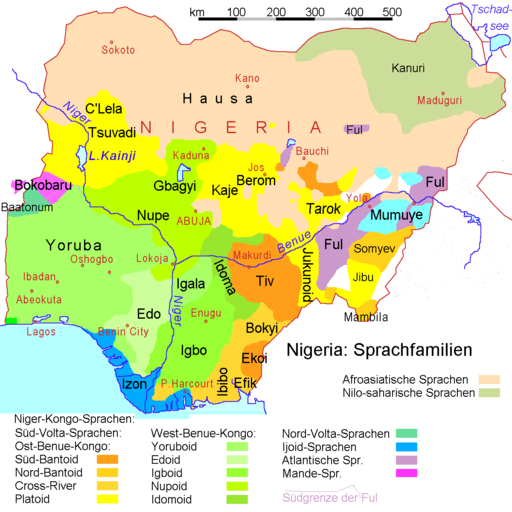First, some interesting facts about Nigerian Languages…..There are over 520 languages of them! Only Indonesia and Papua New Guinea have more. Over 1/4 of all African languages are spoken in Nigeria. Hausa is spoken as a first language by over 25 million people, and as the second by a further 18 million. (If you are interested to see where your language falls in the world rankings check out Ethnologue's website.) It is not surprising therefore that most Nigerians in addition to their own native tongue and English, speak or understand at least one other of their country’s languages. The languages with the most speakers are Hausa, Yoruba, Igbo.

All Nigerian languages are tonal. Yoruba, I am told, is amongst the most tonal languages in the world. For adult language learners tones can be difficult to master: the subtle rise and falls, the multitude of alterations to vowel sounds that tones make, often sound very strange compared to the syllabic stress patterns of English. But as I found out last week, even native Nigerians have difficulty.
Last week one of my colleagues, A, was on the phone talking to someone in Igbo, not his native tongue, not even his second languages, actually more like his 4th after English. Next thing I knew my other colleague, F, sitting on the desk between A and me burst out laughing. It turns out A had fallen foul of a classic tonal pattern mishap, which in English sounds really unfortunately funny. He had meant to say Bawo ni isé? (Note the rising tone accent on the final 'e' which has nothing to do with the fact that it is a question, and which translates as How is work? But he had said Bawo ni ìsé ? (Note the additional falling tone on the initial 'i' of the final word) and this means How is poverty? What a faux pas!
No comments:
Post a Comment